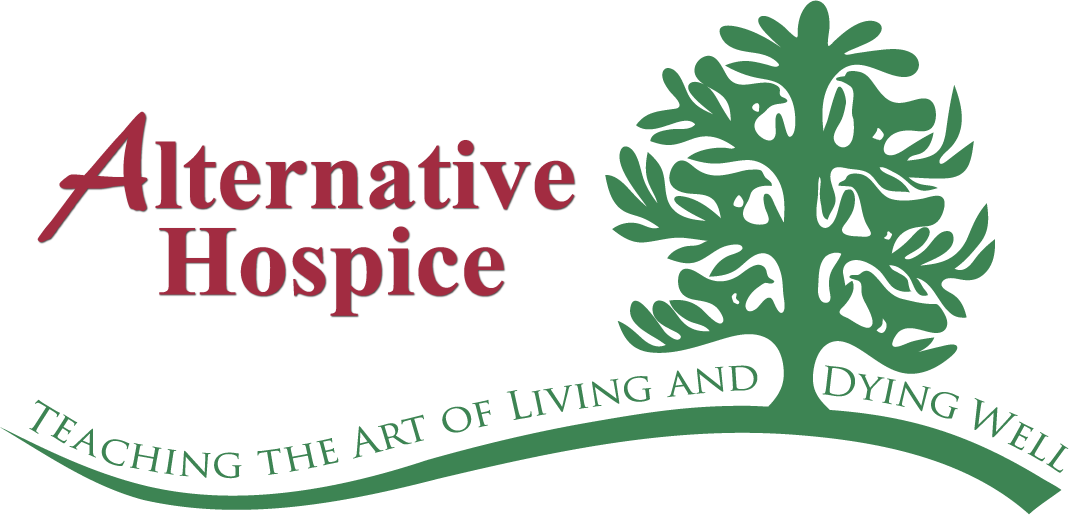Education & Resources
Alternative HospiceEducation & Resources for Hospice Care
Prior to starting or at the beginning of hospice care, it is important to make your wishes known to family and caregivers, and ensure care decisions are being made based around what you desire in the event you are unable to speak for yourself. At Alternative Hospice, we also want to support your family and loved ones through such an emotional journey.
Let us help you and your family prepare for hospice care. To learn more about the hospice education and resources we provide, contact us today.
Advance Care Planning
If you are in an accident or have an illness that leaves you unable to talk about your wishes, who will speak for you? Advance Care Planning is making decisions about the care you would want to receive if you happen to become unable to speak for yourself. These are your decisions to make, regardless of what you choose for your care, and are based on your personal values, preferences, and discussions with your loved ones. At this time, you can express to your family, friends, and healthcare providers your wishes and personal beliefs about continuing or withdrawing medical treatments at the end of life.
Communicate Your End-Of-Life Wishes
While it can be difficult to initiate the end-of-life conversations, they can ultimately be an invaluable gift to those you love and those providing your medical care. It is essential to think in general about what is important to you and ensure others are aware of your priorities. It is necessary to take the time to make sure your wishes are documented and signed by you.
Advance Directive
An Advance Directive describes two types of legal documents that enable you to plan for and communicate your end-of-life wishes in the event that you are unable to communicate: a Medical Power of Attorney and a Living Will.

Medical Power of Attorney
A Medical Power of Attorney allows you to appoint a person you trust as your healthcare agent (or surrogate decision maker) who is authorized to make medical decisions on your behalf if you are unable to speak for yourself.
Living Will
A Living Will allows you to document your wishes concerning medical treatments that you would or would not want if facing a serious or life-limiting illness.
Find out more about Advance Care Planning by contacting Alternative Hospice. Our care team can provide you with the tools and resources needed to complete a living will, appoint a health care power of attorney, as well as a Do-Not-Resuscitate Order (DNR).
Grief Support
When someone you love dies, allowing yourself to mourn is a natural way to express your grief. Mourning brings healing, but it requires the support and understanding of others as you journey towards the knowledge of how to embrace the pain of your loss. At Alternative Hospice, we want to aid you in this healing process.
Utilizing the companioning model developed by Alan Wolfelt, we will walk beside you as you begin this process. If you have had a loved one in our hospice program, you may choose to meet with one of our professional grief support team members on an individual basis. These caring individuals offer resources and practical information, helping you express your feelings and to support you through the difficult first year of your loss.
Symptoms of Grief
Grief is different for everyone, and each individual will experience different symptoms at different times. It can affect our bodies, minds, and spirits, as well as how we manage day-to-day living. Experiencing grief can bring on many changes, such as:
- Shock, denial, numbness and disbelief
- Anger, guilt, and loneliness
- Anxiety, fear, panic
- Physical reactions such as headaches, illness, fatigue, weakness, and confusion
- Change in sleep patterns
- Changes in appetite, nausea
- Uncontrollable or unexplainable fits of crying
- There may even be feelings of relief and then guilt for feeling relieved
Ways to Nurture Oneself Following the Loss of a Loved One
Take Your Time
After a loss, be gentle with yourself – there is no time limit on grief, and it will take as long as it needs to take. The path is seldom clear, but what is clear is that by moving through our grief and reconciling into our lives, we find healing.
Express your Feelings
Don’t hold your grief in – find ways to express and not repress these feelings. The process of healing grief comes through integrating your grief into your life. Share what you are feeling openly with people you trust and value.
Stay Consistent
Consistency is important in relieving stress, so continue to maintain your daily routines. Eat, sleep, and exercise with regularity, even though this may prove challenging at times. Grieving is also hard work, so drink lots of water as it will aid in the healing process.
Reach Out
We are not meant to grieve alone. Reach out to those you share a supportive relationship with. Your family and friends are there to encourage and support you. Encourage others who have been touched by the loss to join with you in grieving.
Rely on Your Spirituality
Regardless of how strong we may be or feel, grief can challenge everything belief we value. Reach out to things that give meaning, value, and purpose to your life. These will be the resources that aid you in integrating the loss into your life.
Slow Down
Grief can be overwhelming. Your mind is not at the same place as your body. Recognize that you may not have the ability to make clear decisions and that you may need more time to complete even simple tasks.
Remember – there is no such thing as closure, but the pain will not go on forever. As you begin to reconcile the loss into your life, the pain will begin to lessen.
CALL US TODAY!
Alternative Hospice: 636-343-3839
Fax: 636-343-6367
Alternative Home Care: 636-432-0008
Fax: 636-283-2863

